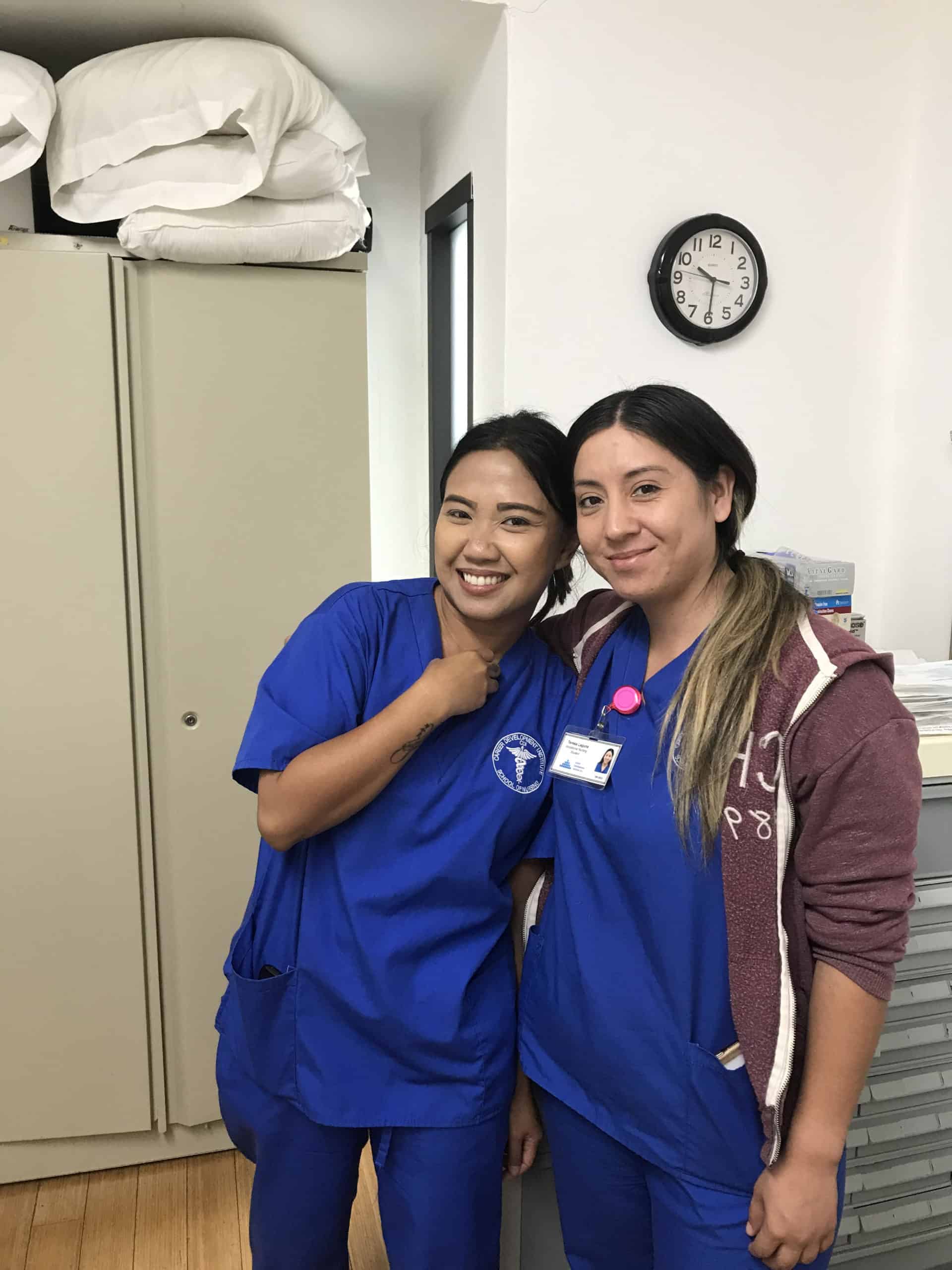What is an LVN vs. an LPN, and why do you see both terms used interchangeably?
For those interested in becoming a licensed nurse, the terms LVN vs. LPN is a bit confusing.
If you’ve just started looking for LVN programs in California, it can be especially unclear. Spoiler: They’re basically the same thing.
Is There A Difference Between LVN vs. LPN?
LVN is an abbreviation for “licensed vocational nurse”.
LPN is an abbreviation for “licensed practical nurse”.
And guess what? It’s the same thing. The difference is simply location. California and Texas utilize the term LVN, which is why LPN is much more common.
However, the roles, the required schooling, and the licensure is nearly identical from state to state.
So the short answer to “Is there a difference between an LVN vs. an LPN” is “no”.
Whether you’re an LVN or an LPN, you are a licensed nurse who works with a healthcare team. Depending on the facility and the nature of the work, you will typically report to an RN, a medical doctor (or both).
LVNs can facilitate various treatments and patient care, including:
- Wound care
- Sample collection (blood draws, urine, and stool samples)
- Collect and chart patients’ vitals (blood pressure, heart rate, oxygen saturation, etc.)
- Life-saving emergency care, especially CPR
- Day-to-day care (bathing, eating, mobility, etc.)
- Administer medication
- Monitor and insert IVs and catheters
- Manage and chart routine physical exams
LVNs in California are critical to the healthcare ecosystem and perform important tasks in the delivery of patient care. As an LVN, you can also work within numerous facilities, like:
- Hospitals
- Residential care facilities
- Home health care
- Hospice care
- Rehabilitative care
- Doctor’s offices/clinical settings
- …And more!
Is an LVN a Real Nurse?
One of the most common questions members of our CDI admissions team hear is: “Is an LVN a Real Nurse?”
The answer is an unqualified “yes!”
LVNs are “real” licensed nurses (it’s right there in the name!). As an LVN, you have plenty of opportunities to advance your career, learn new skills, and earn more income even if you opt not to become an RN later (more on that below).
You might work on a specialized team (cardiac care, palliative care, and so on). You could also potentially earn more income as a traveling nurse, especially since so many hospitals around the country are facing nurse shortages like the one we’re experiencing right here in Los Angeles.
Should you decide you want to get more schooling later and become an RN, there are programs designed to help you do just that.
What is an LVN to RN Bridge Program?
Healthcare facilities like hospitals and doctor’s offices aren’t the only places straining to find
nurses during this shortage. Four-year colleges and universities are also struggling to replace the retiring faculty in nursing programs around the country.
LVN-to-RN bridge programs are set up specifically for vocational nurses to complete a BSN degree. While many LVNs happily work in that role for their entire careers, RNs do have more responsibility (and can therefore earn more income).
The amount of time for you to complete an LVN-to-RN bridge program can often depend on your situation and how the program itself is structured. For example, if you can attend school full-time while getting your BSN, it will take less time than an LVN who is studying while also working. More and more online bridge programs are making the process more convenient (and in some cases affordable) for full-time LVNs.
As an LVN, you may be offered the chance to opt out of classes by taking placement exams since you’ve already been working as a nurse. We anticipate the nursing shortage will further motivate employers to retain qualified, skilled, and competent nurses. A necessary strategy could include tuition reimbursement for LVNs who want to become RNs.
How to Become an LVN?
To become an LVN, you need to graduate from an accredited program with an associate’s degree in nursing. You can typically attend an accredited vocational nursing school like CDI or a community college.
Once you’ve graduated, you also need to pass the NCLEX-PN to become licensed to practice nursing.
How do you pick the right program? Talk to them first. Ask questions about the length, cost, and benefits of the program. Ultimately, only you will know the right spot for you.
An accelerated LVN program can get you working in the field quickly, particularly if the school offers job placement, interview prep, and the hands-on instruction to have the confidence and experience you need to start your new career as a nurse.
CDI is an accredited vocational nursing school located in the heart of Los Angeles. We’ve been around since 1998, and we pride ourselves on making sure you pass the NCLEX the first time. Our pass rates are so high, it’s just one of the reasons CDI was named the best LVN program in Los Angeles.
We also treat you like a member of a very special family. Our admissions team is standing by to answer your questions about enrollment, financial aid applications, our hybrid online/in-person program, and more.
Click here to read more about our LVN program, or here to talk to us about enrolling in our next class.


